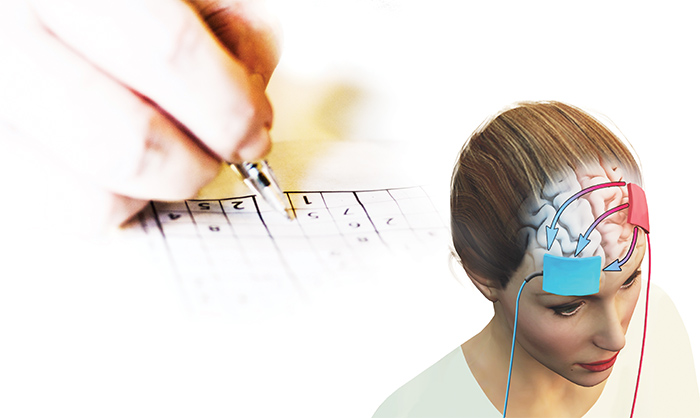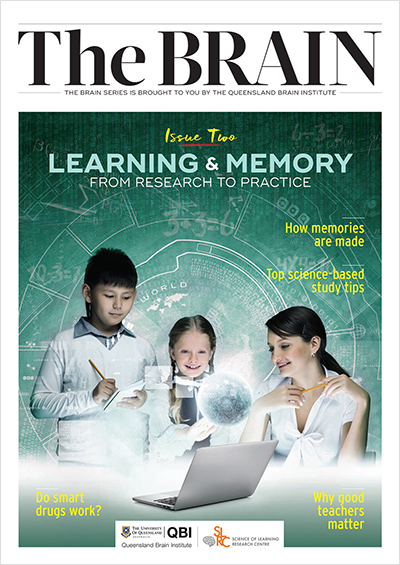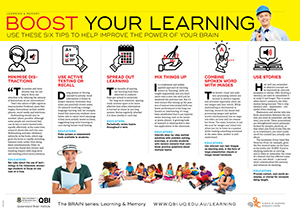Does brain training work?

“There’s no doubt that repeatedly doing certain tasks improves performance on those tasks,” says Professor Jason Mattingley, a cognitive neuroscientist at UQ’s QBI and School of Psychology. “It’s been much more difficult to prove any broader benefits for brain function, or help with untrained tasks.”
Prof Mattingley and his team have now shown that brain training for specific tasks can also improve broader brain performance, when combined with brain stimulation. They recently studied the benefits of brain stimulation devices that deliver transcranial direct current stimulation (tDCS) via electrodes on the scalp (see image above). In the study, participants were trained in a simple decision-making task while they received either active or sham (placebo) brain stimulation.
The team then used mathematical modelling to quantify any improved performance. Participants were later re-tested, on both the trained task as well as a visual search task for which they’d received no training.
The researchers found that after four sessions of training, combined with tDCS designed to increase activity in the brain's left prefrontal cortex, participants’ performance in both the decision-making task and the untrained visual task improved.
“This study is the first to show transfer of performance benefits to untrained cognitive operations with these types of tasks,” Prof Mattingley says. “What’s more, these generalised benefits were still evident a fortnight later.”
“Our findings could help… improve cognition in people with brain disease or injury.”
He believes the study’s outcomes support an important new research direction into the neural basis of cognitive training. “Our findings could help in efforts to stop cognitive decline associated with healthy ageing, or improve cognition in people with brain disease or injury,” Prof Mattingley says. He cautions, however, about the use of DIY brain stimulation.
“There are still many unknowns with these technologies. Although brain stimulation devices are now available commercially, we would not recommend people embark on do-it-yourself brain stimulation at home.”
Brain training research at QBI
 Prof Mattingley’s research also investigates selective attention, the process by which we filter out information to focus on certain objects – a topic that fascinates him.
Prof Mattingley’s research also investigates selective attention, the process by which we filter out information to focus on certain objects – a topic that fascinates him.
“Most of us regulate our attention effortlessly, and for the most part we’re not even aware of what we’re doing,” he says. “But attention is a multi-faceted and complex brain function that is only beginning to be understood. It’s important we do so, because many developmental and acquired brain disorders cause impairments of attention, and these can be very debilitating for sufferers.”


